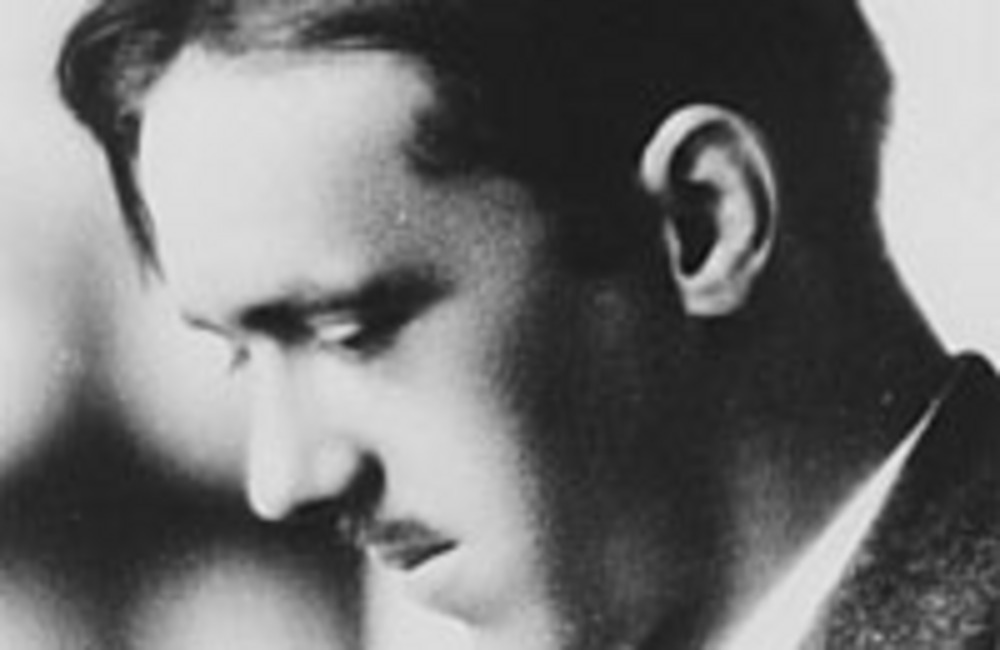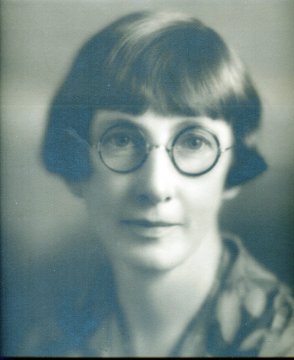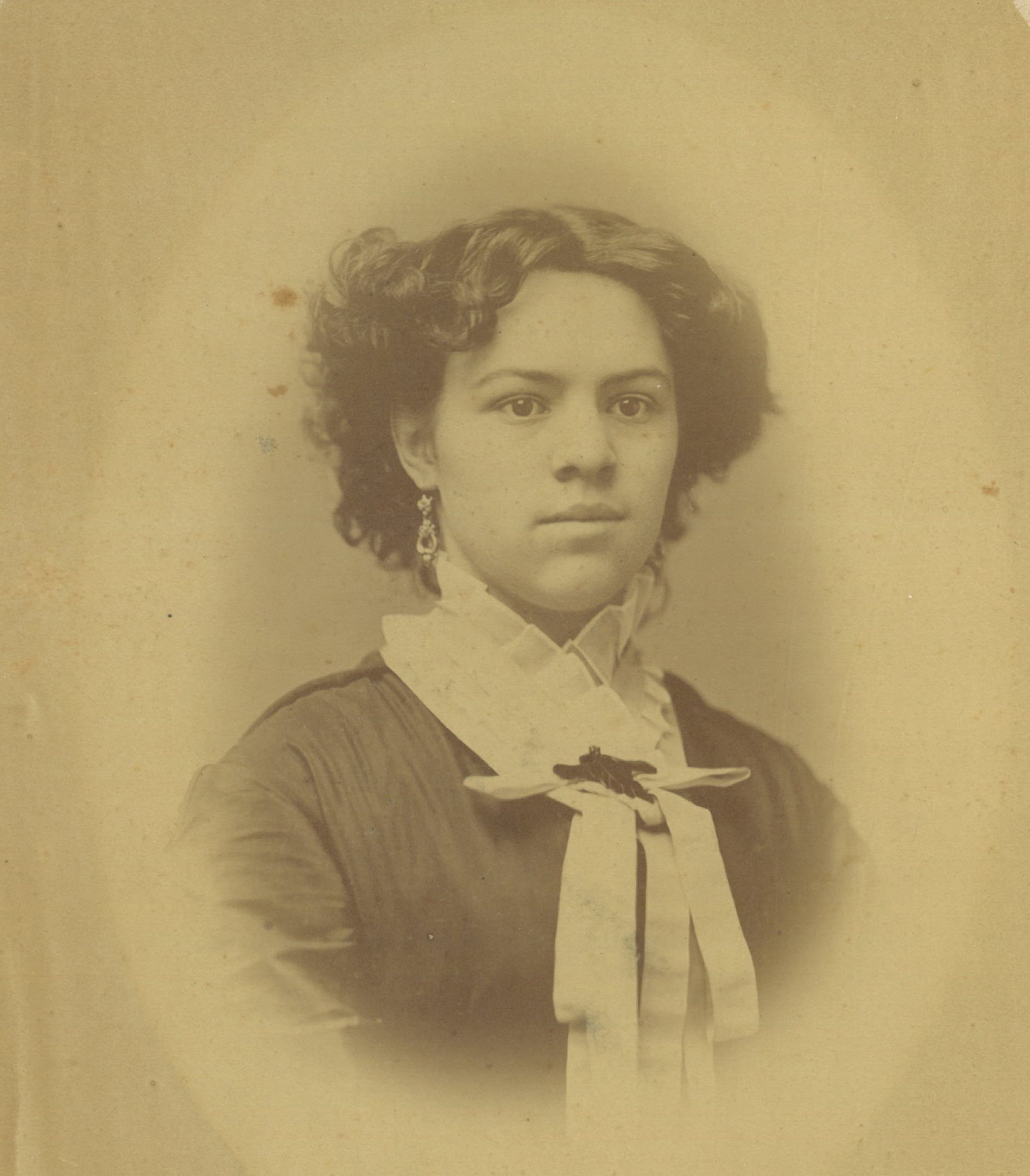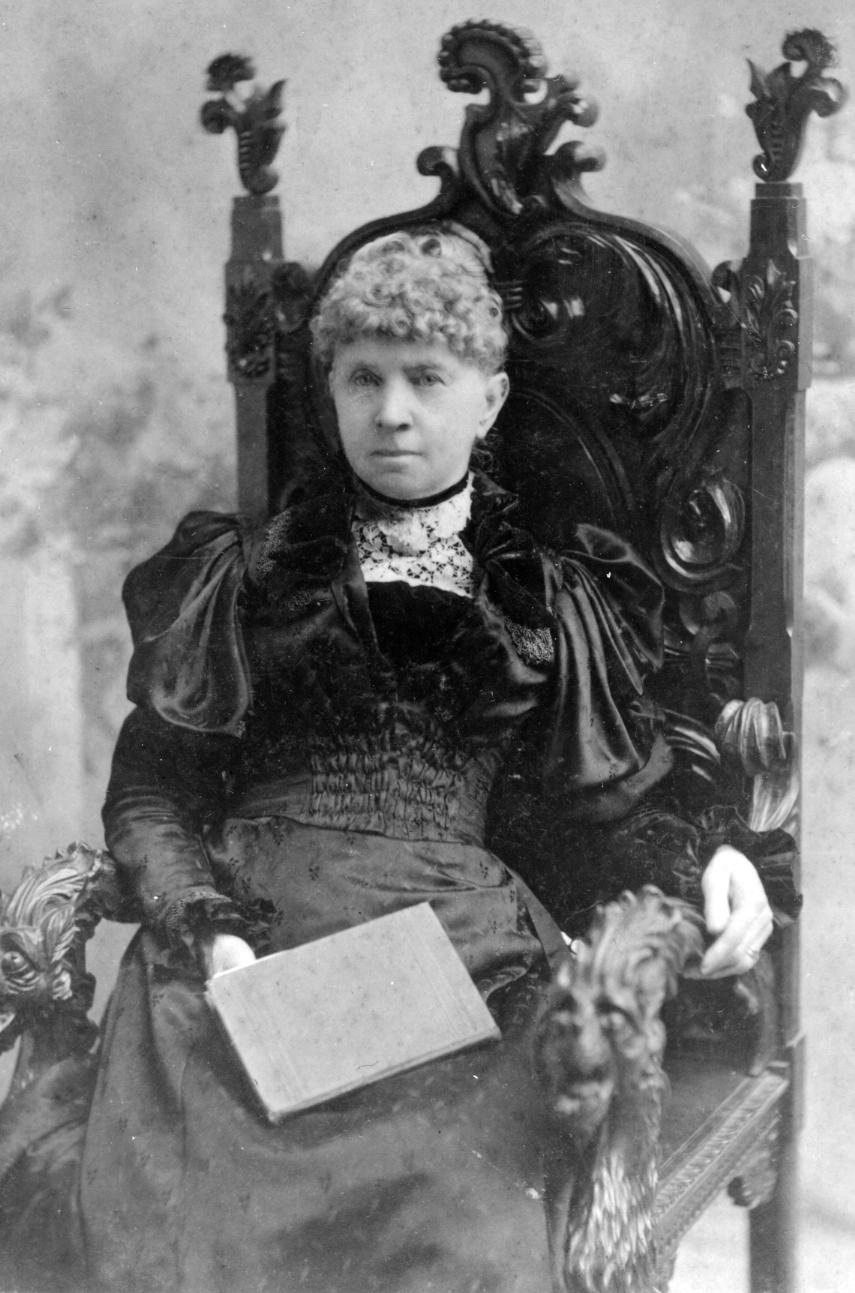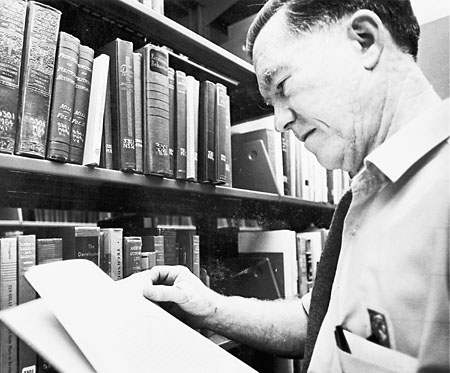Born and raised in rural and small-town Oregon, Harold Lenoir Davis was the most innovative and influential writer of the post-frontier Pacific Northwest. Memorable written literature was slow to be created in this faraway corner of the country. Given the hardships and physical demands of early frontier life and the mad scramble to convert its great natural resource wealth to profit, there was little time, inclination, or audience for homegrown literature. Worse yet, the social support for the arts that did exist was damped down by a prevailing regional attitude of Victorian respectability, high-mindedness, and religiosity that shunned the primal realities of the region.
Early literary efforts sought acceptance through pallid imitations of fashionable East Coast models. The most admired poem of early Oregon, for example, was Sam Simpson's "Beautiful Willamette" (1868), written in the diction and jingling meters and rhymes of Edgar Allan Poe's "The Raven." Simpson's tribute transformed the flood-prone, wild Oregon river into the pleasing generalities of English pastoral poetry.
Into this unpromising tradition, which produced only a handful of books that are still readable today, galloped H.L. Davis's first novel, Honey in the Horn (1935), like a wild colt through a prayer meeting. Reigning American literary critic H.L. Mencken called it the best first novel ever written in America. The following year, it won the Pulitzer Prize for fiction. More important, it marked a fresh new start for Northwest literature.
Davis was born in Nonpareil, a backwoods community near Roseburg, in western Oregon. His parents were educated, his father a country schoolteacher who was also an expert rifle shot and could maintain discipline in tough times. The family shifted through a succession of small communities around Roseburg before moving to Antelope in central Oregon. They finally settled on the mid-Columbia River, where Davis's father became principal of the high school in The Dalles, from which young Davis graduated in 1912. The youth was well acquainted with rural life and work; and in his teenage years and young manhood, he worked at a variety of jobs, including cowpuncher, sheepherder, packer, surveyor, timekeeper for a railroad, and deputy sheriff for Wasco County.
Though Davis had no formal education beyond high school and liked to portray himself as a working-class guy who had been around, he was by nature an intellectual. He was widely read in both the classics and contemporary literature, spoke and read several languages, and was an accomplished guitarist and folklorist. His early literary efforts were in poetry, and in 1919 he won the Levinson Prize, awarded by Harriet Monroe's Poetry magazine.
Davis teamed up in 1927 with James Stevens, another Northwest writer from the school of hard knocks, to publish a little pamphlet, "Status Rerum," a scathing attack on the ineptitude of most Northwest literary efforts. The free-swinging insults of "Status Rerum" so offended the region's literary establishment that after the early 1930s Davis chose to live elsewhere, mostly in California and Mexico, though Oregon remained the home country for his most memorable literary creations.
Honey in the Horn, with its distinctive narrative style and its invigorating rendition of the natural Northwest—its weather, its plant and animal ecology, and its country characters and life—set a new standard for the region, indeed for all western American literature of the early twentieth century. Davis followed this novel with four more, Harp of a Thousand Strings (1947), Beulah Land (1949), Winds of Morning (1952), and The Distant Music (1957). Winds of Morning has probably been judged as the strongest of the four, although none has received the acclaim given his first novel.
From his early days as a fiction writer and throughout his career, Davis also produced many first-rate short stories and sketches, gathered in two collections, Team Bells Woke Me (1953) and Kettle of Fire (1959). In addition to its fine title story, Kettle of Fire has a number of valuable articles about Oregon that Davis wrote for Holiday magazine during the 1950s.
-
![]()
H.L. Davis.
Oregon Historical Society Research Library OrHi 27399
Related Entries
-
![Ethel Romig Fuller (1883-1965)]()
Ethel Romig Fuller (1883-1965)
Ethel Romig Fuller was Oregon’s first female poet laureate, from 1957 t…
-
![Eva Emery Dye (1855-1947)]()
Eva Emery Dye (1855-1947)
As an impressionable and imaginative girl growing up in Illinois, Eva E…
-
![Frances Fuller Victor (1826–1902)]()
Frances Fuller Victor (1826–1902)
In 1869, the Overland Monthly and Out West Magazine featured "Manifest …
-
![Ken Kesey (1935-2001)]()
Ken Kesey (1935-2001)
A farm boy from the Willamette Valley, Ken Kesey brought an earthy, ind…
-
![William Stafford (1914-1993)]()
William Stafford (1914-1993)
William Stafford, one of America’s most widely read poets, was born in …

